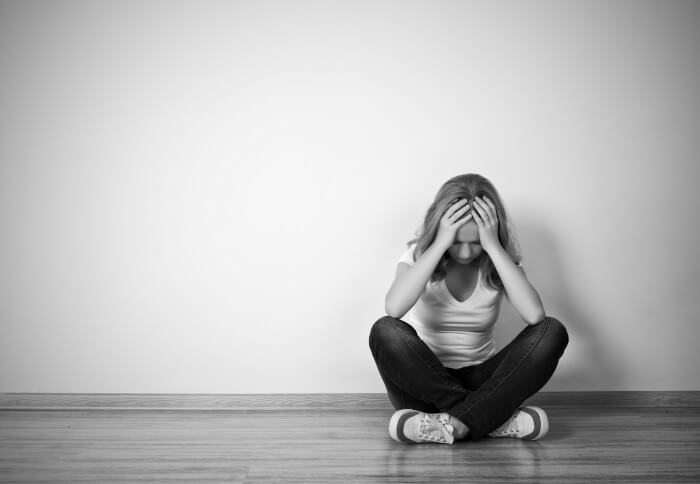 Many recreational users take drugs for their psychedelic effects. But few users anticipate the nightmare of drug-induced psychosis. Also known as substance-induced psychosis or toxic psychosis, this condition involves a severe break in the user’s perception of reality. An individual with drug-induced psychosis may experience the following psychological changes:
Many recreational users take drugs for their psychedelic effects. But few users anticipate the nightmare of drug-induced psychosis. Also known as substance-induced psychosis or toxic psychosis, this condition involves a severe break in the user’s perception of reality. An individual with drug-induced psychosis may experience the following psychological changes:
- Hallucinations: Seeing or hearing things that others don’t experience
- Delusional thinking: Holding false beliefs about oneself or others
- Paranoia: Extreme suspicion or fear that others are out to harm you
- Dissociation: A sense of being detached from one’s own body or identity
- Disorganized thought patterns: Inability to make logical, rational connections between events or experiences
- Impaired communication: Difficulty expressing oneself, understanding other people, or relating to others in social situations
Psychosis isn’t just caused by drugs. This disturbing mental state can be caused by a psychiatric illness such as schizophrenia, depression, or an anxiety disorder. In the case of drug-induced psychosis, the mental disturbances are linked to the use of a chemical substance. However, substance abuse and psychotic disorders often occur in the same individuals. According to the Psychiatric Times, a recent clinical study show that nearly 75 percent of study participants who had had a psychotic episode also had a substance use disorder.
In most cases, drug-induced psychosis is temporary and reversible. The symptoms of toxic psychosis usually disappear or improve significantly when the user stops taking the drug. But certain drugs can cause long-term damage to the individual’s sense of identity and perceptions of reality. A comprehensive neuropsychological evaluation can help mental health professionals distinguish between the symptoms of drug-induced psychosis and other forms of mental illness.
How Does Drug-Induced Psychosis Happen?
The same chemicals that cause desirable psychoactive effects like euphoria, giddiness, a heightened sense of confidence, increased energy, or pleasurable hallucinations can also cause frightening and harmful responses. Drugs like alcohol, cocaine, heroin, LSD, and PCP cause alterations in the way the brain processes neurotransmitters. Neurotransmitters are naturally occurring chemicals that affect your moods, emotions, energy levels, memory, and perceptions.
Clinical research indicates that the neurotransmitters involved in drug-induced psychosis include dopamine, serotonin, and glutamate, among others. According to Frontiers in Behavioral Science, the repeated use of stimulants like methamphetamine interfere with the brain’s natural production of dopamine, a neurochemical that causes sensations of pleasure and euphoria. The overproduction of dopamine can interfere with cognitive and behavioral functions like memory, emotion, and social interaction. LSD use has been linked to changes in serotonin levels, while PCP abuse has been associated with abnormalities in the actions of glutamate.
Under the influence of drugs, the brain and nerves can trigger abnormal reactions and distorted perceptions. When these substance-induced reactions cause a break in the individual’s relationship to reality, a psychotic episode may occur. Some drug users suffer from psychosis after a single experience with drugs, while others have psychotic symptoms after taking unusually high doses. The intensity and duration of a psychotic episode depend on a number of factors, such as:
- The type of drug or toxic chemical ingested
- The amount of the drug that was taken
- The user’s sensitivity and tolerance to drugs
- The ingestion of multiple substances
- Pre-existing psychiatric disorders in the user
If you, a friend, or a family member has experienced serious mental disturbances after taking drugs, you may have been affected by drug-induced psychosis.
A professional detox and rehab program can help you overcome the need take drugs while addressing the core issues at the heart of your substance abuse.
There are many chemical substances that can cause psychotic symptoms. Medications that affect brain function — such as drugs used to treat Parkinson’s disease — can cause hallucinations or delusional thinking in certain patients. Recreational drugs associated with psychotic reactions include:
- Alcohol. Alcohol-induced psychosis can be a side effect of acute intoxication or a result of alcohol withdrawal in heavy, chronic drinkers. Symptoms include paranoia, visual and auditory hallucinations, and delirium. Many of the neuropsychiatric symptoms of alcohol-induced psychosis result from a deficiency of thiamine, a B vitamin that is depleted through chronic alcohol abuse, notes the journal Alcohol and Alcoholism. Psychotic episodes usually stop with medical detox, rehab, and abstinence from alcohol.
- Stimulants. Central nervous stimulants like cocaine, amphetamines, and methamphetamine increase the brain’s release of dopamine. Repeated use of these drugs can cause disordered thought patterns, hallucinations, and paranoid delusions. Research shows that meth abuse can actually change the structure of the brain, causing long-term cognitive side effects.
- Hallucinogenic drugs. Mind-altering drugs like LSD, PCP, and MDMA (Ecstasy) are abused for their psychedelic effects. However, these psychoactive substances can also cause paranoia, extreme confusion, delusions of invulnerability, perceptual distortions, and frightening hallucinations. Regular users of LSD and PCP can experience flashbacks, or brief hallucinatory episodes, for months or even years after discontinuing the drug.
- Marijuana. Tetrahydrocannabinol, or THC, one of the primary psychoactive ingredients in marijuana, has been associated with psychotic symptoms in regular cannabis users. Marijuana-induced psychosis can manifest itself through disordered thinking, paranoid delusions, hallucinations, and extreme mood swings. Heavy marijuana users may also experience psychotic symptoms, depression, or anxiety when they withdraw from cannabis.
Anyone who abuses recreational drugs is at risk of psychotic symptoms. However, there are certain factors that increase the danger of psychosis, including:
- Repeated drug use. Frequent drug use changes the brain’s chemical pathways, causing neurological changes that can interfere with normal perceptions, cognition, and emotions. The more often you take mind-altering drugs, the more these changes are reinforced.
- Family history of mental illness. Psychiatric illness tends to run in families. Individuals with a family history of schizophrenia, depression, anxiety, or other mental health disorders may have a predisposition to psychiatric disturbances, including drug-induced psychosis.
- Pre-existing psychiatric disorders. Psychoactive drugs can increase the risk of psychosis in users who are already susceptible to mental illness. According to the British Journal of Psychiatry, for example, regular cannabis use may trigger psychotic symptoms in users with a pre-existing psychiatric disorder. The same susceptibility is seen in mentally ill individuals who abuse hallucinogenic drugs, alcohol, or stimulants.
- Multi-drug users. Taking multiple drugs increases the risk of having a dangerous psychological reaction. The interaction of chemicals may intensify the psychoactive symptoms of one or more drugs. Recreational drugs may also cause psychological symptoms when combined with certain medications.
How can you identify the signs of drug-induced psychosis? It’s not always easy to distinguish a serious mental illness like schizophrenia or major depression from a substance-induced disorder. In most cases, the individual with drug-induced psychosis is an active, regular user of one or more substances that can cause psychotic symptoms.
Psychosis is most common in users who are acutely intoxicated, but it can also occur in periods of withdrawal, as the brain reacts to the absence of the drug. Listed below are some of the signs and symptoms to watch for:
- Incoherent self-expression in speech, writing, or gestures
- Confusion or disorientation in familiar surroundings
- Seeing objects, people, or creatures that aren’t there (visual hallucinations)
- Hearing voices or sounds that don’t exist (auditory hallucinations)
- Extreme suspicion or fear of others, even close friends and family (paranoia)
- Bizarre, uncontrollable impulses, such as jumping from high places or walking into traffic
- Panic attacks combined with delusional fears
- Dramatic, unjustified emotional changes, such as alternating between tears and laughter within minutes
If you are with someone who is experiencing acute drug-induced psychosis, seek emergency medical attention immediately. Psychosis is a sign of a toxic reaction to the drug, which may escalate into more severe, life-threatening symptoms.
What Treatment Is Needed?
 Medically managed detoxification is the first step in recovering from drug-induced psychosis. Clearing the chemicals from your system is often enough to stop the more extreme psychological symptoms. Once the mind is clear, a substance abuse counselor or therapist can perform neuropsychological tests to determine whether your symptoms are the result of substance abuse or of an underlying mental illness.
Medically managed detoxification is the first step in recovering from drug-induced psychosis. Clearing the chemicals from your system is often enough to stop the more extreme psychological symptoms. Once the mind is clear, a substance abuse counselor or therapist can perform neuropsychological tests to determine whether your symptoms are the result of substance abuse or of an underlying mental illness.
A comprehensive treatment program for chemical dependency can help you recover your mental clarity and your physical health. After the detox phase, intensive treatment at a residential facility can provide the structure and support you need to achieve a full, sustainable recovery. The core components of rehab include:
- Intensive individual psychotherapy
- Group counseling sessions with peers
- Family therapy with a licensed counselor
- Nutritional counseling
- Holistic therapies (massage, yoga, and meditation)
- Relapse prevention therapy
- Aftercare support services
In some cases, psychological symptoms don’t disappear with the discontinuation of recreational drugs. When mental illness co-occurs with substance abuse, both conditions must be treated in order for true healing to take place. If you are suffering from undiagnosed depression, anxiety, bipolar disorder, schizophrenia, or another form of mental illness, your treatment plan for substance abuse must include a plan for mental health care.
You may be prescribed psychiatric medication to help you manage your symptoms, along with specialized therapy to address your specific disorder.
Axis provides high-end therapeutic solutions for people who are struggling with substance abuse. We offer personalized rehab programs that reflect your unique needs, as well as a choice of treatment options at our facilities in Southern California. Call our intake counselors today to learn more about how we can help you achieve your dream of a healthy, positive future.


